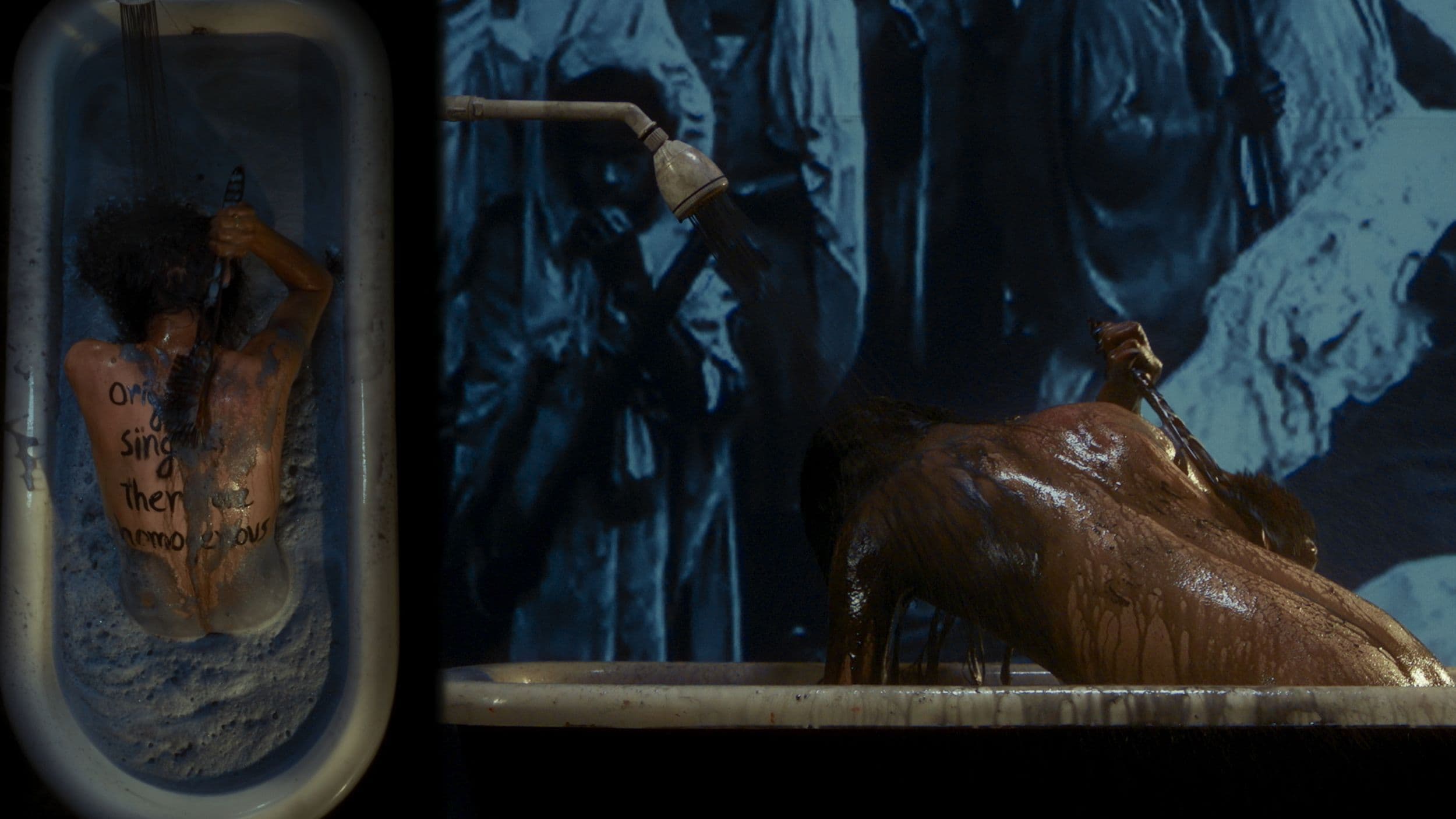
Pride special: A South Asian Queer Pamphlet
Kaur Chimuk reflects on his motivation for making A South Asian Queer Pamphlet, what impact the project had and what Pride means personally.
In 2022 the interactive web installation A South Asian Queer Pamphlet by Soumya Mukhopadhyay was one of the remarkable projects of IDFA’s Doclab. It also was selected for the IDFA DocLab Competition for Digital Storytelling. Every visitor and participant can take home their own queer pamphlet, based on the word from a queer alphabet—from the A in Appearance, through Fluid, Intersectionality and other key concept. Each letter is linked to a short film showing the non-binary Indian performance artist Kaur Chimuk, and show the 16th-century Jamali Kamali tomb of the gay poet and his lover, or the famous steps on the banks of the Ganges in Varanasi. Together these images create a view of a non-binary future from a postcolonial, South Asian perspective.
We asked Kaur Chimuk to reflect on his motivation for making A South Asian Queer Pamphlet, what personal impact the project had and what Pride Month means.
What were your main motivations for making A South Asian Queer Pamphlet?
I see this initiative as an inclusive effort to connect with allies; it's more like building a bridge. I wanted to create a pathway that leads to a mutual space for inclusive dialogues and interactions. As a non-binary catalyst from the BIPOM (brown-indigenous-people of margins) community, finding a place within a framework that goes beyond 'individualism' is often challenging. Thus, this initiative represents hope for a non-binary future.
Do you think projects and films with this theme and perspective are still needed in this time?
Certainly, this work is still relevant. We envision it as an immersive debate, and I firmly believe that our work will have a significant impact as a de-colonial toolkit. In fact, our project is still ongoing, and I am making an effort to once again deeply delve into the critical concept of 'South Asian queering' to explore it more extensively. I am optimistic that in the near future, we can incorporate more perspectives inside our existing domain to further expand its vision.
Which reactions on your project touched you the most?
There have been a few personal incidents that stand out in my memory. One of them was during IDFA 2022 when I met a filmmaker from Pakistan at our premiere. The way they expressed their feelings towards our initiative was truly heartwarming and more than just a compliment. Moreover, this year, I had the opportunity to meet some young survivors in India and share the inspiration behind our project with them. During this process, the sincere solidarity I received from them toward our project felt like a true blessing.
How do you see your place within the queer/lgbtqi+ community?
I feel that the term 'queer' (the way it majorly appears in academics and otherwise) carries a 'western' understanding of 'self and existence', which is why probably my association with this concept is still evolving. But as a fluid persona, I feel a deep connection with the wider marginalized community (beyond gender) because of its plurality and diversity. From my early days, I have shared a special bond with this wonderful commune because they helped to understand the bonding beyond a linear understanding of family.
What does Pride mean to you?
I find it complex; the significance of Pride Month is relatively new and limited mainly to metropolitan areas. Growing up in a historical industrial town in India, I personally connect with Pride Month as a source of strength that allows me to understand the enduring resistance that transcends linear time and space. While I am fully aware of the political events in the West and express my deepest solidarity, but still i believe it is a good time that we can bring attention to Southeast Asia and its prolonged history. Here pride is celebrated as a manifestation of performative diversity. In this context, sometimes we may lose track of specific dates/months but cherish the enduring durational participation.